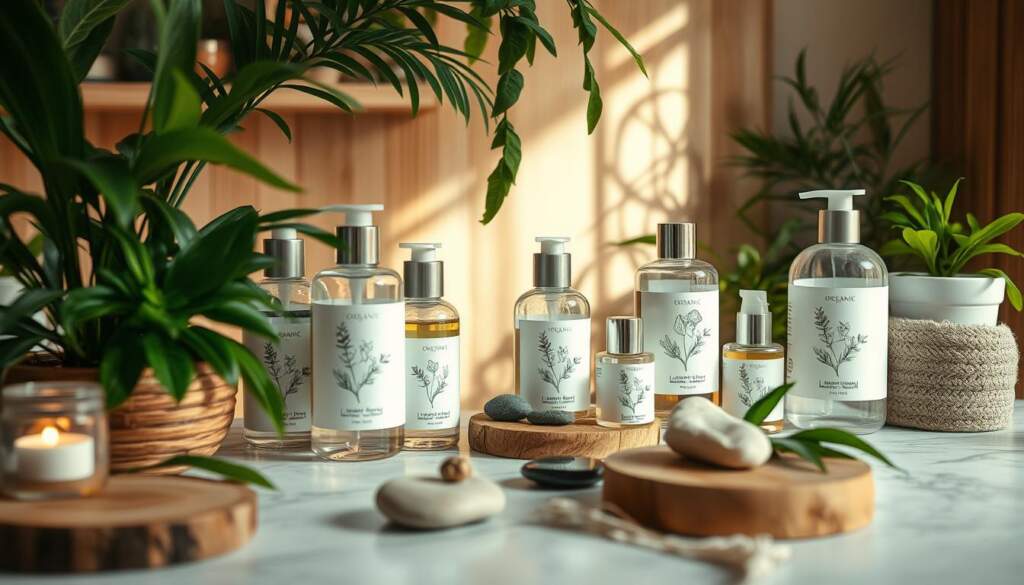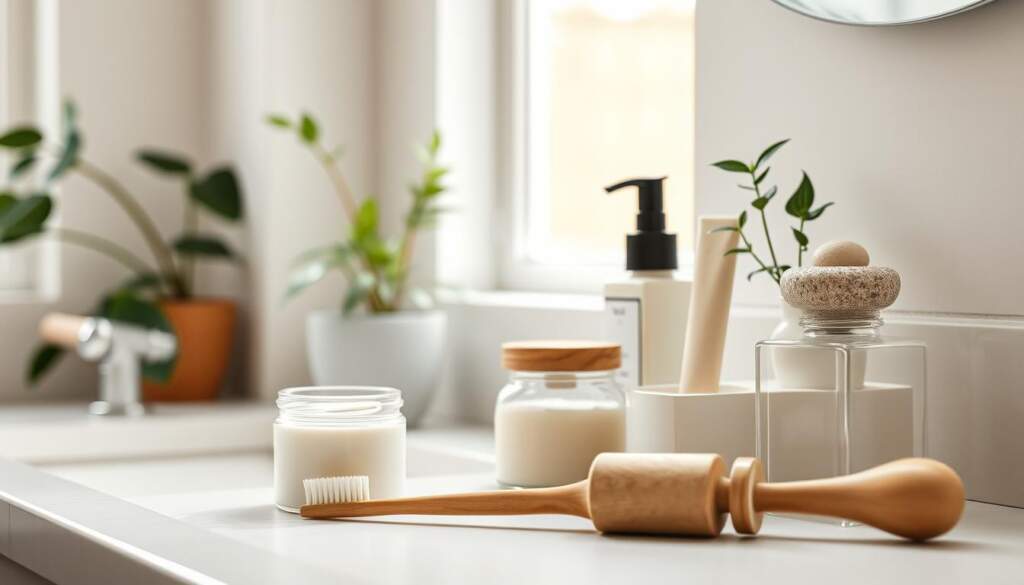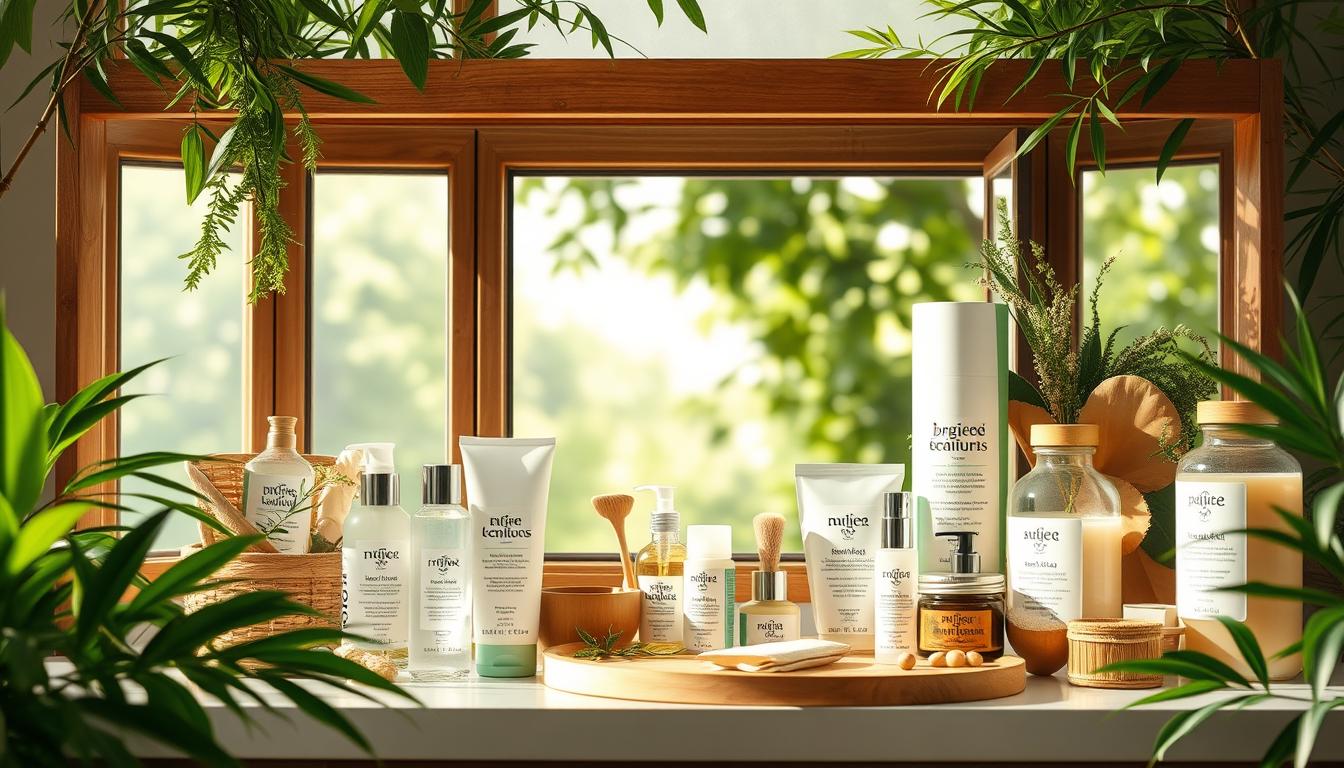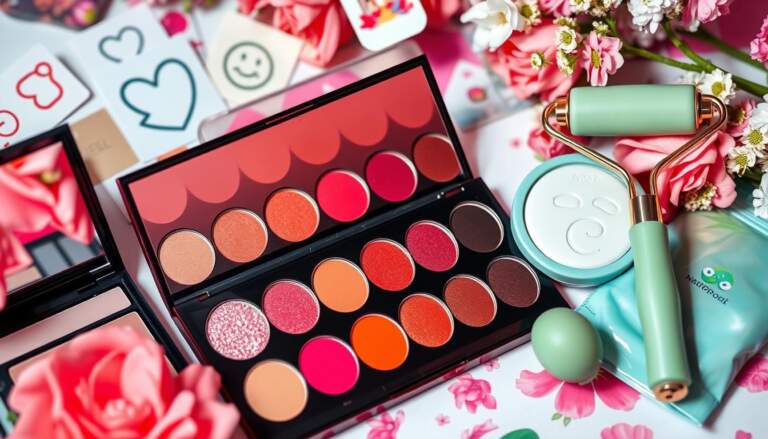Encountering a boost in popularity, eco-friendly skincare, natural cosmetics, and sustainable beauty trends are significantly reshaping the beauty industry. According to recent data, the ever-evolving market for natural beauty and personal care is robust, boasting a valuation at around $51 billion, with an impressive growth rate of 5.4%. Incredibly, natural products are driving this surge, contributing a full 21% to the industry’s expansion despite only having an 8% market share1. This phenomenon was notably discussed at Expo West’s panel, “The State of Natural Beauty”.
Understanding the demands and concerns of today’s consumers is key. A compelling 75% of Americans express significant unease about toxic chemicals present in personal care products, and among women under 50, this concern rises even higher to 84%1. Such anxiety is compelling a pivot towards products that promise a clean, cruelty-free1, and transparent appeal, a commitment not only to health but also to sustainability. This demand for transparency and ethical production echoes the skin care sector’s dominant role in the natural cosmetics ingredient market, holding a revenue share of 38.7%2.
Advertising and recommendations via social media platforms like TikTok have become instrumental in shaping these choices, as consumers increasingly favor shorter ingredient lists and plant-based components1. As a result, there’s a marked increase in the adoption of certifications like EWG VERIFIED to foster consumer trust1. To keep informed on the latest in sustainable beauty and receive updates directly, consider subscribing to our weekly newsletter.
Key Takeaways
- Natural beauty industry displays remarkable growth with a 5.4% increase in value1.
- Consumers’ concerns about toxic chemicals drive a significant shift towards eco-friendly skincare1.
- Clean beauty is backed by influential social media education and the demand for ingredient transparency1.
- Skin care remains the largest segment in the natural cosmetics market due to consumer preferences2.
- Third-party certifications are increasingly vital for establishing consumer trust in natural products1.
The Evolving Landscape of the Natural Beauty Market
As the personal care industry growth surges, the impact of clean beauty retail trends, inclusive beauty, and ethical consumerism is profoundly reshaping the market landscape. At the forefront of this transformation is the natural beauty sector, which captures a significant share by aligning closely with evolving consumer preferences.
$51 Billion and Growing: The Natural Segment’s Market Share
The burgeoning demand for natural and clean beauty products has driven market valuations upward, with current projections showing an impressive expansion. Remarkably, 85% of consumers are now willing to pay a premium for beauty products that demonstrate clear benefits and efficacy3. This willingness underscores the shift towards products that are not only effective but also ethically produced and environmentally sustainable.
Inclusivity and Diversity Shaping Product Offerings
Unquestionably, inclusive beauty has become a cornerstone of the natural beauty sector. Brands are increasingly recognizing the importance of catering to a diverse clientele, creating products that embrace all skin tones, types, and preferences. Notably, nearly half of beauty consumers have recently sought out brands that openly support diversity and inclusivity3. This shift is not only a reflection of social progress but also a strategic business move in a competitive market.
The Consumer Shift: From In-Store to Online Shopping
The personal care industry is observing a pronounced shift from in-store purchasing to online shopping platforms. With real-time education provided by platforms like TikTok, consumers feel more empowered and informed, making deliberate choices about the products they purchase. This clean beauty retail trend highlights the critical role of the internet in shaping modern consumer behavior and the continued growth of the personal care industry.
| Statistic | Detail |
|---|---|
| Inclusivity Pursuit | Almost 50% of consumers have purchased from brands promoting diversity in the past year3. |
| Preference for Ethical Products | Over 30% buy from brands supporting aligned social/political issues3. |
| Shift to Online Shopping | Significant consumer shift towards online platforms for beauty purchases. |
Understanding the Natural Beauty Consumer
The surge in clean beauty preferences is greatly shaped by a heightened chemical awareness and the potent influence of social media. Today’s consumers are not only informed but also insistent on ensuring that their personal care products are safe and wholesome.
The Move Towards Clean: Chemical Awareness and Preferences
As the natural beauty market continues to expand, driven by a composite annual growth rate of 5.4%, consumers are increasingly meticulous about the ingredients in their personal care products4. A significant 75% of Americans, especially women under 50, perceive toxic chemicals in beauty products as a serious threat, influencing a clear shift towards toxic-free personal care4. This shift is supported by the growth in the popularity of ingredients such as hyaluronic acid, retinol, and bakuchiol, which have seen substantial increases in sales due to their beneficial properties4.
How Education Through Social Media Influences Choices
Social media platforms like TikTok have become pivotal in educating consumers about the benefits of natural ingredients and the importance of avoiding harmful chemicals. This education is not only increasing consumer engagement but also encouraging a more analytical approach to purchasing decisions. Platforms are highlighted as tools that drive consumers to stores, where 71% prefer to inspect products firsthand4. Moreover, the year 2023 has emphasized the critical role of innovation in natural cosmetics, underlining the industry’s commitment to meeting the clean beauty preferences of today’s eco-conscious consumers5.


The interplay between enhanced awareness and available information has created a powerful consumer force that values transparency and sustainability in their beauty products. This trend is likely to continue, with natural personal care seeing a 10% growth acceleration, particularly in haircare4.
Skincare as Makeup and The Minimalism Trend
The fusion of skincare and makeup isn’t just a fleeting trend; it’s a movement towards mindful beauty practices, aptly represented by the rising popularity of makeup-skincare hybrids. This shift is largely driven by the increasing consumer desire for minimalist beauty routines that promise maximum results with minimum effort.

Amid the broad spectrum of beauty trends, skinimalism stands out by encouraging consumers to cut down on their skincare and makeup products. This approach not only simplifies daily routines but also improves skin health by minimizing the risk of irritation from excessive product use6. Furthermore, embracing minimalist beauty routines aligns with eco-friendly practices by significantly reducing packaging waste and carbon emissions associated with the production and disposal of cosmetic products6.
Financially, the trend towards skinimalism is appealing as it emphasizes investing in fewer, but higher quality products. This can lead to more cost-effective beauty habits over time6. Brands like The Ordinary and Glossier have been instrumental in promoting quality over quantity, offering products that cater to the essentials of skin care and minimal makeup, supporting the idea that less is indeed more.
Essential products in a skinimalist routine often include those that serve multiple purposes. For instance, tinted moisturizers that also provide SPF protection, or blushes that can double as lip tints, are highly recommended6. These products support the notion of minimalist beauty routines by diminishing the need to carry multiple products and thus simplifying beauty regimens.
Notably, artists like Eszter Magyar and Violette Serrat have propelled this minimalist trend further into the spotlight. They advocate for authenticity and personal expression through minimalist approaches to makeup. For example, Serrat’s brand, Violette_FR, offers versatile products that encourage users to celebrate their innate beauty rather than masking imperfections7.
In conclusion, as we see a merging of skincare and makeup, the focus shifts towards products that honor both efficacy and ethical standards, resonating deeply with today’s environmentally conscious and aesthetically motivated consumer. This harmonious blend of beauty and care is not just a passing trend but a transformative movement in the beauty industry.
Ingredient Transparency and Clean Product Formulations
In today’s beauty landscape, the clamor for clean beauty formulations underpins a significant shift in consumer behavior. Discerning consumers increasingly prioritize transparent ingredient lists, heralding a trend of accountability in personal care products. This focus on ingredient transparency goes hand-in-hand with the demand for simplicity and safety in skincare regimes. Moreover, the mounting concerns for ethical standards and environmental impacts are driving the beauty industry toward a more conscientious approach.
Selecting Safer Options: The Power of Shorter Ingredient Lists
The movement toward minimalist beauty breaks down complexities, favoring products with fewer but efficacious components. Clean beauty enthusiasts are more inclined to choose products with ingredient lists they can understand and trust, knowing that such conciseness can often equate to higher quality and decreased risk of skin irritations. This concern has been mirrored in Germany, where nearly half of clean beauty users have stopped using products due to safety concerns8. Private label cosmetics manufacturers recognizing these preferences can stand out by not only simplifying their formulations but also engaging in practices that address the rising demand for cruelty-free and vegan options, which have seen a notable increase in popularity9.
The Surge of Plant-Based and Upcycled Ingredients
Emphasizing sustainability, the beauty industry is experiencing an uptick in plant-based skincare innovations, which resonate with the ethical values of consumers and align with their lifestyle choices. The compelling narrative around upcycled ingredients, like passion fruit seed oil, is drawing attention as brands demonstrate their ingenuity and strict adherence to sustainability. These initiatives are in full swing, evidenced by the fact that a significant portion of beauty consumers in Germany and the UK are influenced by the sustainability of ingredient sourcing and the eco-friendly actions taken by large companies8. As private labels venture into green beauty, they find themselves in a strategic position to cater to this expanding market, further reinforced by the 65% of adults who struggle to identify the authenticity of a brand’s eco-friendly claims—highlighting an opportunity for those that can provide genuine transparency8.
FAQ
What defines a product as ‘natural beauty’ in the personal care industry?
How significant is the natural beauty market’s financial impact?
Why is inclusivity important in the natural beauty market, and how are brands approaching it?
How is the consumer shift from in-store to online shopping affecting the natural beauty market?
What are the chemical awareness and preferences of today’s natural beauty consumers?
How does social media educate and influence the natural beauty consumer’s choices?
What is ‘skinimalism,’ and how is it influencing beauty routines?
Why is ingredient transparency important in clean beauty products?
Are there any benefits to using products with plant-based and upcycled ingredients?
Source Links
- The State of Natural Beauty: Here’s what consumers want – https://www.supermarketnews.com/organic-natural/the-state-of-natural-beauty-here-s-what-consumers-want
- Evolving beauty: The rise of sustainable cosmetics – https://www.cas.org/resources/cas-insights/the-rise-of-natural-ingredients-for-cosmetics
- Natural cosmetics: Trends and requirements for a sustainable future | NATRUE – https://natrue.org/natural-cosmetics-trends-and-requirements-for-a-sustainable-future/
- The State of Natural Beauty: Consumers seek innovation, sustainability – https://www.newhope.com/personal-care/the-state-of-natural-beauty-consumers-seek-innovation-sustainability-quick-routines
- Exploring The Future of Natural Beauty: Top Trends in Natural Cosmetics | Nordics – https://wearenordics.com/en/exploring-future-natural-beauty-top-trends-natural-cosmetics/
- The Rise of ‘Skinimalism’: Why Less is More in Your Beauty Routine | BEAUTIFY.TIPS – https://beautify.tips/tips-trends/skin-care-tips-trends/the-rise-of-skinimalism-why-less-is-more-in-your-beauty-routine/
- Redefining Beauty: The Irony of Skin Minimalism and the Rise of Authentic Expression — Faith Love Hope – https://flhmag.com/Redefining-Beauty-The-Irony-of-Skin-Minimalism-and-the-Rise-of
- The Clean Beauty Market & The Rise of Conscious Cosmetics | Mintel – https://www.mintel.com/insights/beauty-and-personal-care/conscious-cosmetics-the-rise-of-clean-beauty/
- The Rise of Clean Beauty: Trends and Opportunities – Private Label Cosmetics Manufacturer – https://auroracos.com/the-rise-of-clean-beauty-trends-and-opportunities/



